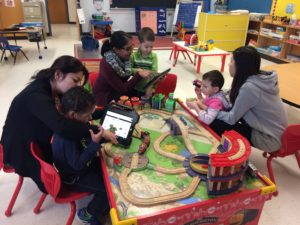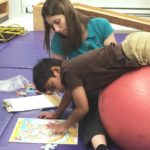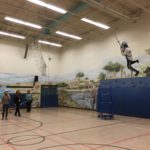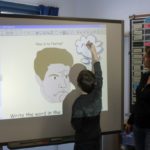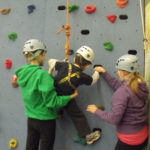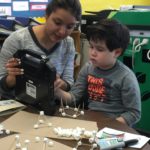My son was diagnosed with autism when he was almost four years old. He had fewer than five functional words, and his favourite pastime was lying on the floor examining a piece of string. The diagnosing doctor did not give us a great prognosis: our boy, he said, had limited capacity for learning, and he was likely to fall further and further behind with each passing year.
Not to be deterred, we persevered with the speech therapy sessions that he was already enrolled in, and we put him on the waiting list for occupational therapy. These services, combined with intensive behavioural intervention (IBI) turned out to be life-changing interventions. Within weeks, we started to see an explosion of skills. My son did not have a limited capacity for learning. He simply needed to be taught in a non-conventional way, by people who understood the challenges faced by kids with autism.
Now thirteen, my son has blasted most of that doctor’s predictions out of the water. He has his challenges, and he may never be able to live completely independently, but the skills he learned all those years ago created enormous amounts of potential for him.
It is imperative that children with autism be given opportunities to learn as early on as possible, no matter how bleak their diagnosis looks. Without the services that my son received, he would not be the same child he is today. The world would not get to see how bright and funny and amazing he is.
Autism families find hope in all sorts of places. One such place is Giant Steps, a school and therapy centre that is dedicated to helping kids with autism develop skills that will last them a lifetime. Through an intensive program that includes various forms of therapy, the staff at Giant Steps facilitate the unlocking of potential that might otherwise be hidden away forever. In so doing, they are not only helping the kids, they are helping the entire community.
- An occupational therapy session
- The swing in the climbing centre
- The Smart Board
This weekend, I will running the Scotiabank Toronto Waterfront Half-Marathon in support of Giant Steps. All of the funds raised will go towards the following hands-on therapies that are so crucial for these kids:
Speech & language therapy: Children with autism are all over the place with regard to their communication abilities. Some can hold conversations but experience verbal “tics”. Others are completely non-verbal. The speech therapists at Giant Steps work with kids of all communication abilities, and they make use of tools like augmentative communication devices and PECS (picture exchange communication system).
Occupational therapy: Giant Steps has therapists who can help children who struggle with fine or gross motor skills, sensory challenges and proprioceptive difficulties. This in turn helps them develop independent living skills, like dressing themselves, being able to write and coping with sensory overload.
Behavioural therapy: Kids with autism often experience intense anxiety and sensory difficulty that comes from their neurological differences. For many, frustration at not being able to communicate is combined with an inability to regulate emotions. The result can be meltdowns that are traumatic for the child and his or her caregiver. Using ABA (applied behaviour analysis) techniques, therapists are able to teach children how to cope with their challenges.
- The Giant Steps climbing wall
- Learning to read with the iPad
- Learning about math and language
Giant Steps does not receive funding from the government or from the school board for the therapy they provide. The provision of services is dependent on donations and fundraising endeavours. I am asking friends, family and supporters to sponsor my autism run, so that Giant Steps can continue the work they do.
If you would like to sponsor me, please visit my fundraising page. The difference you make will last a lifetime.
This is an original post to Running For Autism by Kirsten Doyle. Photo credit for all pictures: Giant Steps Toronto.





